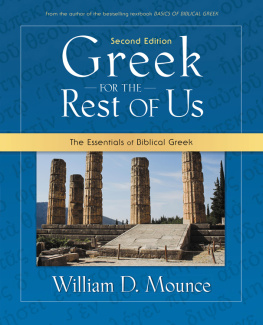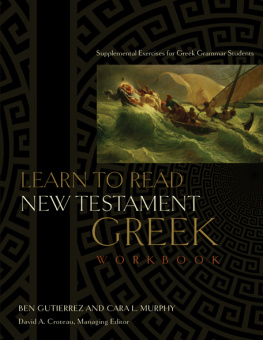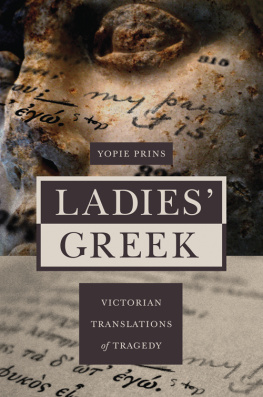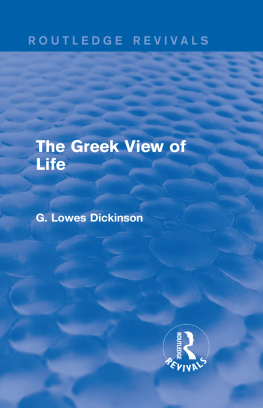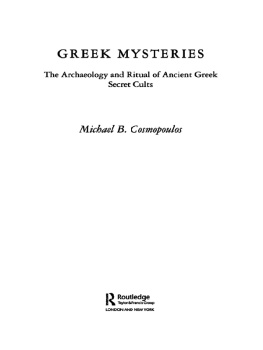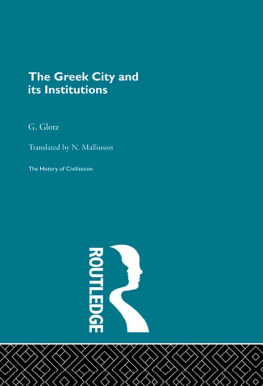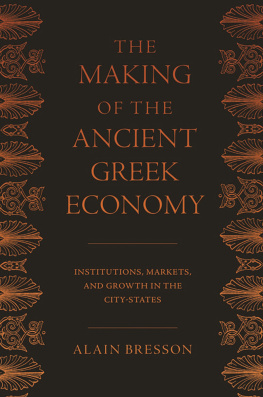THE GREEK CITY
The polis or city-state was the most striking feature of ancient Greece, and in its evolved form is one of the most important contributions of the Greeks to western civilisation. In this classic study of the Greek city which combines history and sociology, Glotz traces the evolution of Greek institutions, their essential characteristics, details of their construction and the underlying concepts that created and sustained them, mixing description and analytical insight, always remembering that human societies are not theoretical abstractions, but are comprised of living beings. The book deals first with the genesis of the polis from small beginnings, through oligarchy and tyranny to the establishment of democratic government. He examines the closed, autonomous society which was the Greek city in general and of Athens in particular, dealing with ideas on democracy, the assembly of the people, the council, the magistrates, justice and the expansion of the city in the fifth century. Finally, he deals with the decline of the city. There was not only war between cities, but also wars between citizens. The growth of individualism, unbridled egoism, the disappearance of the middle class, and the glaring inequality of wealth which made the proletariat dangerous led to political, judicial, financial and military disorganization which made Greece an easy prey to foreign onslaughts. Glotzs unique sensitivity to the many aspects of the polis have made this masterful volume required reading for all those interested in classical civilisation and ancient history and politics for over seventy years, and there are many thought-provoking parallels with the politics of today.
THE AUTHOR
Gustave Glotz was Professor of Greek History at the University of Paris.
ROUTLEDGE HISTORY OF CIVILIZATION SERIES
A Thousand Years of the Tartars E. H. Parker
From Tribe to Empire G. Davy and A. Moret
A Geographical Introduction to History L. Febvre
Language: A Linguistic Introduction to History J. Vendryes
Race and History E. Pittard
The Migration of Symbols D. A. Mackenzie
The gean Civilization G. Glotz
The Rise of the Celts H. Hubert
The Greatness and Decline of the Celts H. Hubert
The History of Music Cecil Gray
Chinese Civilization Marcel Granet
History and Literature of Christianity from
Tertullian to Boethius Pierre De Labriolle
History of Witchcraft and Demonology Montague Summer
Life and Work in Medieval Europe P. Boissonnade
Mesopotamia L. Delaporte
The Aegean Civilization Gustave Glotz
The Court of Burgundy Otto Cartellieri
The Dawn of European Civilization V. Gordon Childe
The Geography of Witchcraft Montague Summers
The Nile and Egyptian Civilization Moret
The Roman World Victor Chapot
Travel and Travellers of the Middle Ages Arthur Percival Newton
The Civilization of the South American Indians Rafael Karsten
The Greek City G. Glotz
Death Customs Effie Bendann
First published in 2005 by
Kegan Paul International
This edition first published in 2011 by
Routledge
2 Park Square, Milton Park, Abingdon, Oxon, OX14 4RN
Simultaneously published in the USA and Canada
by Routledge
711 Third Avenue, New York, NY 10017
Routledge is an imprint of the Taylor & Francis Group, an informa business
Kegan Paul, 2005
All rights reserved. No part of this book may be reprinted or reproduced or utilised in any form or by any electronic, mechanical, or other means, now known or hereafter invented, including photocopying and recording, or in any information storage or retrieval system, without permission in writing from the publishers.
British Library Cataloguing in Publication Data
A catalogue record for this book is available from the British Library
ISBN 10: 0-7103-1161-3 (hbk)
ISBN 13: 978-0-7103-1161-0 (hbk)
Publishers Note
The publisher has gone to great lengths to ensure the quality of this reprint but points out that some imperfections in the original copies may be apparent. The publisher has made every effort to contact original copyright holders and would welcome correspondence from those they have been unable to trace.
This work which contributes in one of its aspects to the study of theGreek miraclefills also an important placebetween From Tribe to Empire and Roman Political Institutionsin the study of political institutions.
There areas has already been notedhistorians as well as sociologists for whom sociology is quite distinct from history; sociologists who recognize only necessity in their science and historians who recognize only chance in their discipline find themselves in agreement upon this point of distinction. From our point of view, however, history, the all-embracing study of past events relating to man, necessarily includes sociology. The closely woven web of facts of every kind of which history is composed is interwoven with events demonstrating an inherent necessity in social developmentwith what we may call mental logicas well as with innumerable chance happenings. Specialists working in the field of abstractions and generalizations can, undoubtedly, by comparative studieswhether of institutions on the one hand or of religion and intellectual and sthetic activity on the otherset forth general facts; but history furnishes the material for these generalizations, and the result of the comparison, when brought to bear on the facts of history, throws human evolution into relief, picks out the path it has followed from the mass of groupings, recurrences and regular stages, and leads one to seek in logicin the meaning we give to this word for the fundamental cause of these recurrences.
In From Tribe to Empire the social aspect as such was dealt with.1 We there put forward the problem of the origins of society, of the relations between society and the individual, and, as an hypothesis, distinguished various phases of social organizationphases characterized precisely by the varying nature of these relations. It is our belief that society only exists by virtue of the individuals who compose it, but that in order to consolidate its position and attain to maturity, it has at a certain point tosubmerge the individual until the day when the latter asserts himself in some way and consciously strives to bring society to perfection by means of the intellectual and spiritual development which it has made possible.
We followed in the East of antiquity the progress ofpolitical organization from the humble germs of individualized power to the formation of strongly centralized kingdoms and vast empires,2 We showed how the growth of societies in thesecosmocraciesencouraged the division of labour and how, in a general way, the development of the individual followed upon this division of labour no less as a result of technical inventions than of speculative and sthetic activity. But the development was limited by the part which, from a political point of view, privileged individualism played. As the chief of the clan gathered up the totemic





